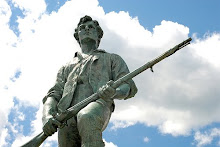Federal agencies regulating private businesses are inherently prone to abuse. Ostensibly these agencies will root out corruption in the private sector, defending the little guy from the depredations of large corporations. But to paraphrase Thomas Jefferson, where are we going to find these angels to watch over us? The men appointed to these posts either come from the industries they are supposed to regulate, leading to conflicts of interest, or they have no background in the industry and are therefore incompetent. In either case, while regulatory agencies are a convenient tool for politicians to change the rules of the game, they are unlikely to secure the public good.
The best candidate for a regulatory agent would have an extensive background in the field to be regulated. To understand practical applications, his knowledge would have to be far more than academic. Thus not only would he hold an appropriate degree but also have considerable experience practicing his trade. Once appointed to public post and given the power to help or hinder his former colleagues, we expect him to suddenly sever all ties of affection and be an impartial arbiter. Although in a perfect world the agent would be a neutral paragon of virtue, the reality is that most men will use their newfound power to reward friends and punish foes.
It might be tempting to choose an agent who had never formed such emotional ties in the field he is to be appointed over. Armed perhaps with a basic degree in the field (if at all), his knowledge would be superficial at best. Empowered and unguided, he would be like a child with a chainsaw; lacking mean intention but terribly dangerous nonetheless. Alternatively, in seeking guidance from another he would place the powers of his office at the disposal of a stranger’s ambition. The result: the agent’s power is either misguided or misused and fails to secure the public good as originally intended.
All acts of government carry with them the implicit use of force to fine or imprison. Government’s acts are most proper when used as Rousseau describes in “defending and protecting with the total common force, the person and the property of each.” However this power is abused when it is directed at furthering personal goals at the expense of the property of others. Creating Federal agencies to interfere in business virtually ensures that agents will actively help or harm the industry they are to regulate; clearly an abuse of Government power. We should not create agencies hoping to maximize the good if the office is held by a perfect man but rather to minimize the evil when the office is held by a flawed man.








